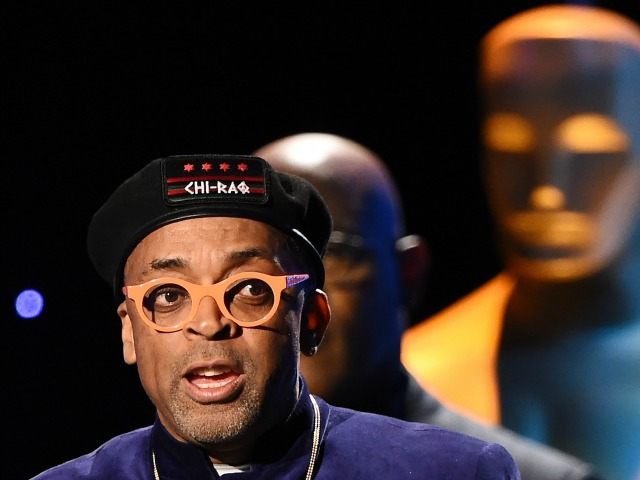Spike Lee will skip the 88th Academy Awards in Hollywood next month, opting instead to watch the New York Knicks take on the Miami Heat at Madison Square Garden in Manhattan — but in an interview Wednesday, the filmmaker said he “never meant to lead” a boycott movement against the awards show.
“Here’s the thing. I have never used the word boycott,” the two-time Oscar nominee said on Wednesday’s Good Morning America. “All I said was my beautiful wife Tonya, we’re not coming. That’s it, then I gave the reasons, so I never used the word boycott.”
“It’s like do you. We’re not coming,” Lee added. “I’m not going. My wife’s not going. Everyone else can do what they want to do.”
On Monday, Lee became the first celebrity to vow not to attend this year’s Academy Awards over the lack of diversity among its acting nominees. For a second straight year, all 20 actors and actresses nominated for top honors are white.
Actress Jada Pinkett Smith, documentary filmmaker Michael Moore, and rapper Snoop Dogg quickly joined the Oscars boycott, while the Rev. Al Sharpton called for all Americans to “tune out” of the February 28 broadcast in protest.
In an Instagram post on Martin Luther King, Jr. Day, Lee said that sitting out the Oscars would fit in line with one of the core philosophies of the civil rights leader, who famously led the 1955 bus boycott in Montgomery, Alabama — a seminal event in the history of the Civil Rights Movement. Dr. King called for the boycott in a famous speech four days after Rosa Parks was arrested for refusing to give up her seat on a bus to a white passenger.
“Dr. King said, ‘There comes a time when one must take a position that is neither safe, nor politic, nor popular, but he must take it because conscience tells him it’s right,'” Lee wrote in explaining his motivation for the decision.
But in his interview Wednesday, Lee compared the #OscarsSoWhite outrage to a “misdirection play,” and said the lack of diversity among this year’s nominees is just a symptom of a much larger problem within the film industry: the fact that minorities are “not in the room” when studio executives decide what films are going to be made.
To remedy that, Lee proposed that studios use a system already in place in the NFL, in which owners must interview a certain number of minority candidates for head coaching or high-level positions.
“That has increased the number of minority coaches and executives in the NFL and that should be used because we can’t go to that tired old realm, ‘Well, we can’t find any qualified candidates,'” he said. “That is B.S.”
During his interview, Lee also cribbed notes from Boyz ‘N The Hood director John Singleton, who has defended the Academy in the wake of the controversy. On Monday, Singleton said that receiving an Oscar nomination is not always an indicator of a film’s quality or staying power.
“[Do the Right Thing is] being taught in colleges, schools,” Lee said of his early film, which was nominated for Best Picture in 1989 but ultimately lost to Driving Miss Daisy. “No one is watching Driving Miss Daisy now. So it also shows you that the work is what’s important because that’s what’s going to stand for years, not an award.”
Numerous celebrities have weighed in on the controversy, even if they have not called for an outright ban: Selma actor David Oyelowo, George Clooney, and Idris Elba have all criticized the Academy for its nominations, while former Fresh Prince of Bel Air actress Janet Hubert has defended the organization.
On Monday, Academy president Cheryl Boone Isaacs said she was “heartbroken” and “frustrated” over the lack of diversity in the industry, and vowed “big changes” were in store for the future.

COMMENTS
Please let us know if you're having issues with commenting.